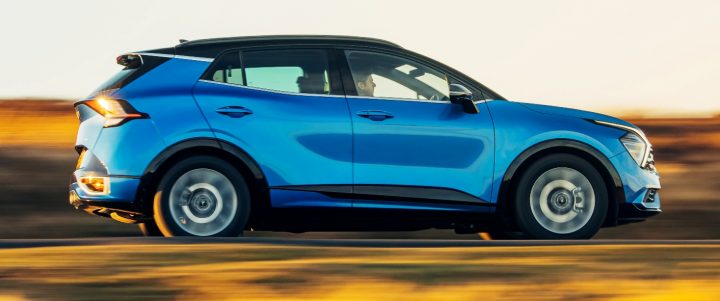Electric car sales soared in January with big incentives from dealers and manufacturers.
Jon Lawes, Managing Director at Novuna Vehicle Solutions said, “The rise in EV registrations at the start of the year is a positive signal, and proposed subsidies for EV loans may encourage drivers to make the switch.
“However, financial incentives alone will not resolve the deeper challenges facing the EV market. Manufacturers remain in limbo over the Zero Emission Vehicle mandate, which requires a 45% increase in EV sales over the previous year.
“Moreover, escalating trade tensions, particularly the threat of tariffs from the United States, risk inflating costs and stalling momentum in EV adoption and potentially igniting a trade war that could have damaging effects on both sides. With so many uncertainties and trade disputes looming, the Government must set out a clear industrial and trade strategy—one that fosters long-term growth rather than relying on short-term fixes.”
But that surge in the shadows of slowing sales generally has worried the motor industry, which is now calling for Government action to boost business.
Reflecting a continuation of ongoing trends, petrol car registrations dropped by -15.3% to comprise just over half (50.3%) the market, with diesel down -7.7% to claim a 6.2% share.
Both hybrid electric vehicles (HEVs) and plug-in hybrids (PHEVs) recorded volume growth and saw their market shares rise to 13.2% and 9.0% respectively. Battery electric vehicle (BEV) registrations, meanwhile, continued recent growth trends, with volumes up by 41.6% year on year to take a 21.3% market share.
Despite the increase in the month, BEV market share still remains short of the 22% target set by government for last year, and even further behind the 28% requirement for 2025.
This gap between demand and ambition is why the review of the Vehicle Emissions Trading Scheme and its flexibilities is essential and must deliver meaningful changes urgently, else there will likely be significant negative consequences for the market, industry and, potentially, the consumer.
Significant manufacturer investment both in new products and, last year, more than £4.5 billion worth of discounts, helped many drivers make the switch, but more consumers are still reticent, looking for greater encouragement from government and elsewhere.
Private retail buyers still lack a meaningful fiscal incentive to buy an EV and, moreover, the application of the Vehicle Excise Duty ‘Expensive Car Supplement’ (ECS) to BEVs in just two months comes at the worst time for the industry. It means EV models costing more than £40,000 – the majority on the market, given higher production costs – will incur a £3,110 tax bill over the first six years of ownership – compared with zero at present.
The change will impact both the new and used car markets, undermining the goal of a mass market transition. As a result, the industry is calling for tax plans to be revised to ensure the system is fair and avoids dissuading those who want to buy an EV, said the SMMT.
In Wales last month, 4,621 new cars were registered, a 11.27% drop on 12-months ago and the steepest decline in the UK which was down an average of 2.47%.
Customers ordering a new Volkswagen electric vehicle from 4 February to 3 March 2025 will receive a £1,000 saving and together with existing incentives could save £10,000 on a top model.
The £1,000 saving is available to anyone ordering a new ID.3, ID.4, ID.5, ID.7, ID.7 Tourer or ID. Buzz, and applies whether they are paying cash or using finance from Volkswagen Financial Services, and they come with a free home charger or £500 credit towards public charging.


